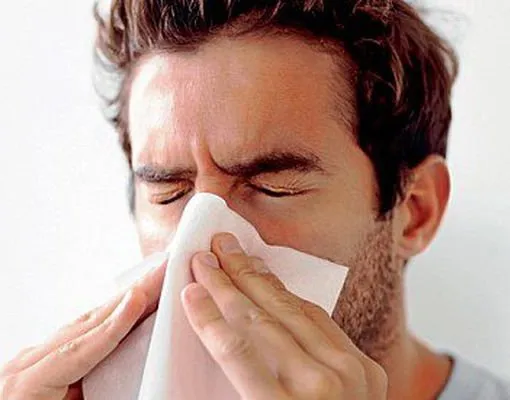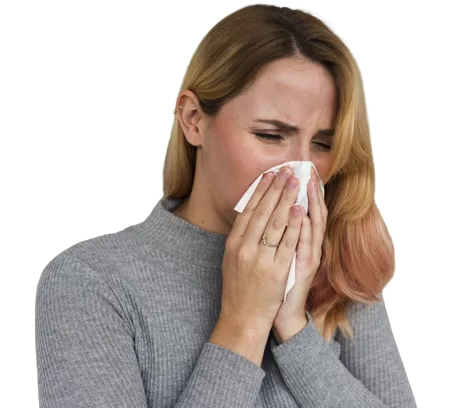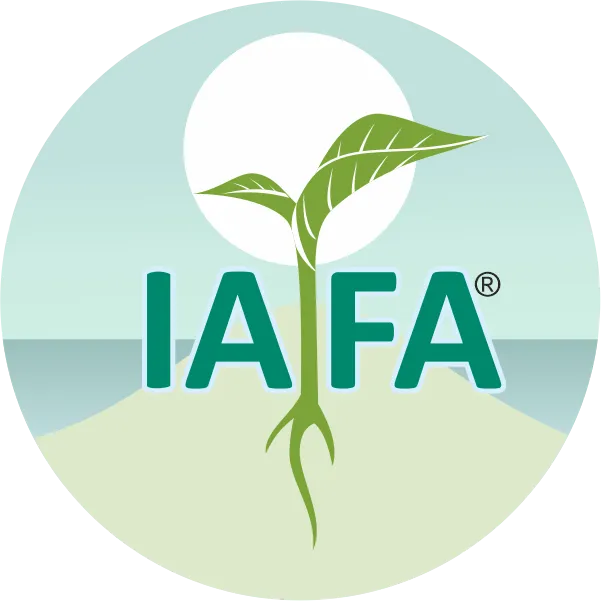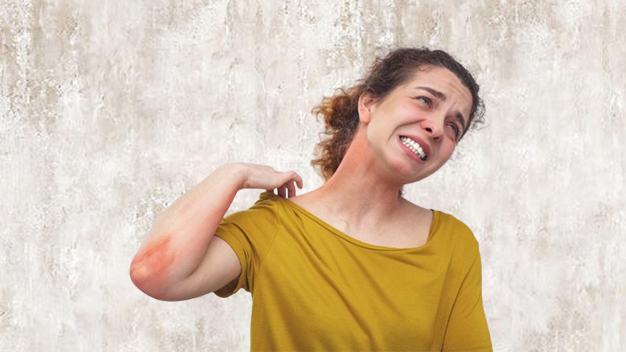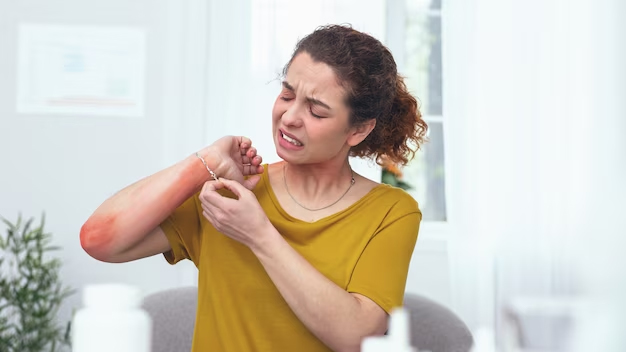On This Page
What is Allergic Rhinitis?
Allergic Rhinitis (Vata-Kaphaj Pratishyay) is a short-term and big problem characterized by the symptoms produced by nasal irritation or inflammation. Culprits are small particles like dust, pollen, dirt, germs, mold and microscopic viruses or bacteria, or some environmental factors that act as an allergen that triggers Allergic Rhinitis. The human immune system is well designed to recognize any foreign body. The nasal lining systematically produces mucus, which traps these foreign bodies. This contaminated mucus flows from the front of the nose and drains down the back of the throat naturally. If the immune system of a person is oversensitive it will react to these foreign bodies and now these foreign bodies are termed allergens. Antibodies are produced to fight against this allergen (antigen). Antigen-Antibody complex developed whenever antigen comes in contact with the nasal passage of your nose and throat internally, these antibodies cause cells to release a number of chemicals, including histamines.
The irritated nasal mucous membrane becomes inflamed and produces too much mucous. This thick mucus, or contains irritating substances can flow from the front nasal opening as a sign of a runny nose, or become noticeable from the back, as post-nasal drip, or as a cough for clearing the throat.
Thus resulting in something wrong typical symptoms like continuous sneezing, runny or blocked nose, irritation in nose & eyes and in the throat, headache, febrile body, etc. Arbitrarily, rhinitis lasting less than six weeks is called acute rhinitis, and persistent symptoms are called chronic rhinitis.
Dr. Gupta’s IAFA® suggests taking a detailed examination with an Ayurvedic Allergy Specialist for understanding the root cause behind the ailment. So, don’t worry about the alternative treatment for allergic rhinitis. Consult with Dr. Sahil Gupta (B.A.M.S., M.H.A.) and follow his guideline, you will get complete relief naturally.
Causes of Allergic Rhinitis – As Per Ayurveda
- Increase in Kapha Dosha,
- Virudha Aahar (wrong food combinations),
- Pollen,
- Dust,
- Poor Digestion,
- Pet Animals,
- Cold Temperature etc.
Ayurveda Concept of Allergic Rhinitis
Allergic Rhinitis is compared with Vata Kapha (are bio energies or life forces of the body) Pratishyay (Rhinitis).
In this, Virudha Aahar (wrong food combinations), Asatmya (unsuitable food), and Ama (body toxins) predict allergic conditions. The product of impaired digestion and metabolism is Ama, which affects Rasa (extract of food) and Rakta Dhatu (blood cells) producing Pratishyay. Virudha Aahar likes eating fruits mixed with milk, milk with fish, ice creams after dinner, honey with clarified butter, etc. leads to allergy.
Classification of Allergic Rhinitis – As Per Ayurveda
Following are the types of allergic rhinitis according to Symptoms:
- Vataj Pratishyay – Nasal Congestion
- Vataj Pratishyay – Sneezing
- Kaphaj Pratishyay – Breathlessness
- Kaphaj Vataj Pratishyay – Nasal Discharge
- Kaphaj Vataj Pratishyay – Headache
Ayurvedic Reference of Allergic Rhinitis
क्षवप्रव्रुत्ति: शिरसोs तिपूर्णतास्तम्भोsगमर्द: परिह्रष्टरोमता।
उपद्रवाश्चापेप्रुथग्विधानरुणांप्रतिश्यायपुर:सरा: स्म्रुता:॥
मा.नि.।नासारोग।१५
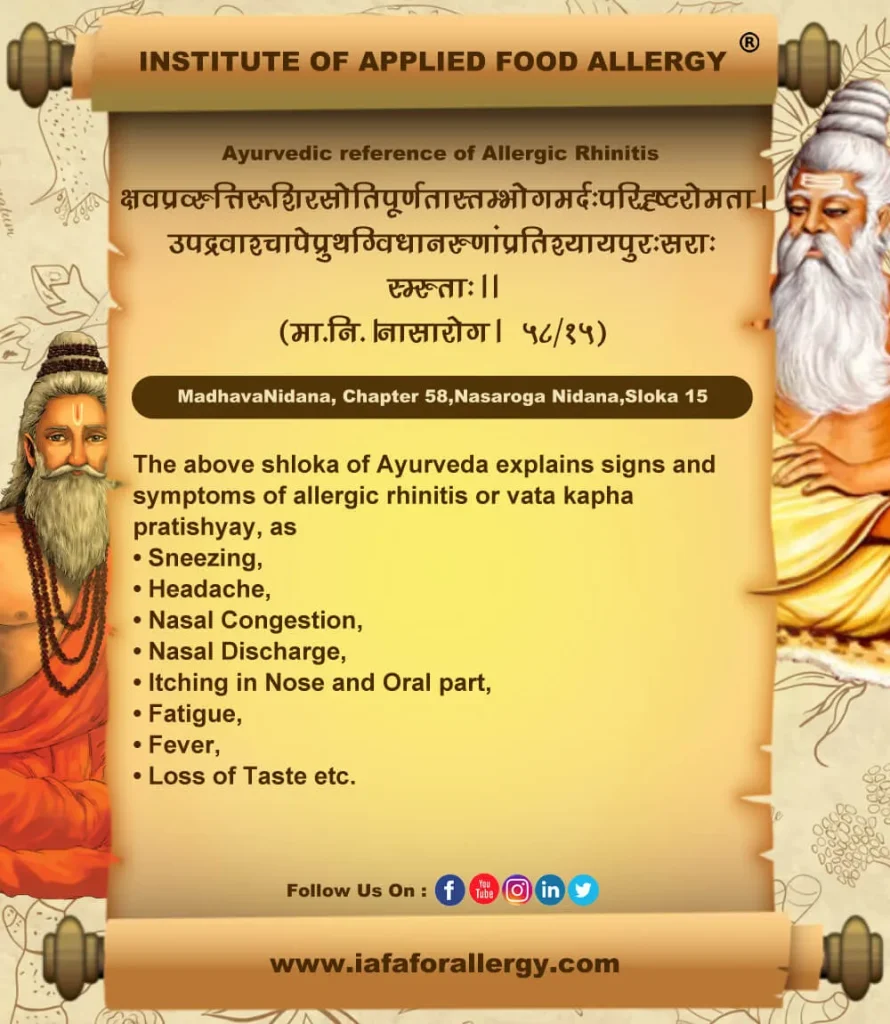
Classification of Allergic Rhinitis
Allergic rhinitis is one of the most common chronic diseases and is estimated to affect between 10 to 20 percent of the population in the world.
Allergic Rhinitis Can Be Classified Into Three Types:-
1. Seasonal Rhinitis
It is also known as Hay fever, which is triggered by exposure to outdoor environmental causes like allergens, such as pollen from plants. The term hay fever is a misnomer in medical science.
NO HAY, NO FEVER SO WHY IT IS “HAY FEVER?”
“Hay fever” is a turn-of-the-century term that has come to describe the symptoms of allergic rhinitis, especially when it occurs in the late summer. Although, the signs and symptoms are not caused by hay, in real ragweed is one of the main culprits. Secondly, seasonal rhinitis is not accompanied by fever.
Causes of Hay Fever or Seasonal Rhinitis
Summer is the main season of production of pollens, so hay fever symptoms are generally at their most intense in summers. Primary triggers of hay fever are:
- Grass pollen
- Pollen from trees
- Weed pollen
- Airborne mold
2. Perennial Rhinitis
The term perennial itself means which occurs all year round and symptoms last for an hour or more each day, however, in some cases the severity of the condition will vary over the course of the year in allergens like dust, animal hair, and mold.
Causes of Perennial Rhinitis
Perennial Rhinitis is commonly provoked by allergens:
- Dust mite feces
- Pet dander, Saliva, urine
- Cockroach and other insect feces
- Indoor mold
3. Occupational Rhinitis
The term occupational itself means the symptoms of allergic rhinitis only occur in a particular work environment, then this is known as occupational rhinitis. Allergens that cause perennial rhinitis are often involved, such as animal allergies for laboratory and farmworkers.
Causes of Occupational Rhinitis
Environments according to different work are:
- Grain dust affecting farmers and agricultural workers
- Cement factory workers
- Flour affecting bakers
- Agro mills and factories
- Latex affecting medical workers wearing gloves
- Fish and seafood proteins affecting factory and kitchen workers
Allergic Rhinitis on the Basis of Allergic and Non-Allergic:-
1. Allergic Rhinitis
The cause is weak immunity and causative factors are Pollen, Dust, Dirt, Mites, Smoke, Strong Odor, etc.
2. Non-Allergic Rhinitis
It is also named Vasomotor Rhinitis. Many odors in sufficiently high concentrations will cause nasal irritation in almost anyone. Vasomotor rhinitis seems to be an exaggeration of the normal nasal response to irritation; In this case, allergens are not culprits.
Irritants that can worsen non-allergic rhinitis:-
- Cigarette smoke or wood smoke
- Fumes
- Humidity
- Pollution
- Changes in temperature
Signs and Symptoms of Allergic Rhinitis – As Per Ayurveda
The above shloka of Ayurveda explains signs and symptoms of allergic rhinitis or vata kapha pratishyay, as:-
- Sneezing
- Headache
- Nasal Congestion
- Nasal Discharge
- Itching in Nose and Oral part
- Fatigue
- Fever
- Loss of Taste, etc.
Diagnosis of Allergic Rhinitis – As Per Ayurveda
In Ayurveda, Ashtvidh Pariksha (Eightfold Examination) has its own importance. The disease is diagnosed with Ashtvidh Parikshan. Nadi Pariksha (Pulse Examination), Mala Pariksha (Stool Examination), Mutra Pariksha (Urine Examination), Jihwa Pariksha (Tongue Examination), Shabda Pariksha (Voice Examination), Sparsha Pariksha (Skin Examination), Drika Pariksha (Eye Examination), Akriti Pariksha (General appearance of a person).
In Ashtvidh Pariksha (Eightfold Examination):-
1) Nadi Pariksha or Pulse examination:- Nadi Pariksha or Pulse examination is very important. In Pulse Examination, Ayurvedic Vaidya can analyze:-
- Current status of the Person‘s Body, Mind, Spirit, and Soul
- Symptoms of imbalance Doshas (Vata, Pitta, Kapha)
- Disease reaction in Human Body.
In Allergic Rhinitis Nadi Rate, Rhythm, Volume, and Force are like Snake & Swan.
2) In Mutra Pariksha (Urine Examination):- Mutra is examined by naked eyes – Urine appears Pandu (Pale), Phenayukta (Foamy) in Allergic Rhinitis (Vata Kaphaj Pratishyay).
3) In Mala Pariksha (Stool Examination):- Mala or Stool is examined by naked eyes – Mala appears Hard, Kapisha (Brown colored).
4) Jihwa Pariksha (Tongue Examination):- Jihwa appears cold, rough, whitish, and sticky.
5) Shabda Pariksha (Voice Examination):- The voice becomes hoarse, guru (heavy), etc.
6) Sparsha Pariksha (Skin Examination):- Appears rough, wet, warm, etc.
7) Drika Pariksha (Eyes Examination):- Eyes appear pluta (watery), snigdha (greasy), kanduyukta (itchy), roudra (reddish, terrifying)
8) Akriti Pariksha (General Appearance):- The overall physique of a person is indicative of a person’s stamina, strength & life forces and Ayurvedic physicians can get information from akriti pariksha or the general appearance of the person.

Have A Health Issue?
Consult Online
– Dr. Sahil Gupta (B.A.M.S., M.H.A.)
Ayurvedic Allergy Specialist
CEO & Founder of IAFA®
At last, Easier Allergic Rhinitis Management

Trusted by
More than 90,000 Patients

Convenient
at-Home Treatments

9.2 / 10
Customer Satisfaction Score
Alternative Treatment for Allergic Rhinitis (Hay Fever)
Allergic Rhinitis is well known for its recurrence & chronicity. Recurrence of disease happens only when the vitiate dosha has not been eradicated completely. These doshas reside in the body in their latent stage & when they come in contact with aggravating factors give rise to the same disease again.
Viewing this concept, Ayurvedic treatment for Allergic Rhinitis includes avoiding allergens causing the reaction (Nidana Parivarjana), Detoxification (Shodhana), Pacification (Shaman) & Rejuvenation (Rasayana) with below-given treatment measures.
Internal Medications for Allergic Rhinitis
- Anand Bhairav Rasa
- Tribhuvan Kirti Rasa
- Lavangadi Vati
- Sitopaladi Churna
- Guduchyadi Yoga
- Marichyadi Yoga
- Vyoshadi Vati
- Khadiradi Vati
- Anu Thailam
- Pipalaydi Nasya
- Vidangadi Nasya
- Chaturjatak Nasya
- Churna Nasya
- Chyawanprash Rasayana
- Chitrak Haritaki Rasayana
- Agastya Haritaki Rasayana
- Vyaghri Haritaki Rasayana
- Vasa Avaleha
External Therapies for Allergic Rhinitis
- Snehana (External oleation): Specially to the forehead with oil.
- Swedana (Fomentation): Gentle sudation with hands or upahada swedan.
- Dhumapana (Smoking herbal drugs).
Purificatory Therapies for Allergic Rhinitis
- Vamana: Sodhana (purificatory) therapy intended for the removal of vitiated Kapha dosha.
- Nasya: Nasya has dual action i.e. pacificatory and purificatory & it promotes the strength of indriya.
- Vasti: Recommended for correction of Vata.
Single Herbs Used in Allergic Rhinitis
Single herbs for Alternative treatment of Allergic Rhinitis (Hay Fever) are Madhuyashti (Glycyrrhiza glabra), Haridra (Curcuma longa), Tulsi (Ocimum sanctum), Bharangi (Clerodendrum serratum), Bibhitaki (Terminalia Bellirica).
Dietary Management of Allergic Rhinitis – As Per Ayurveda
Pathya (Do’s)
- Consume lukewarm water and food
- Less spicy light food
- Soups
Apathya (Don’ts)
- Heavy Meals,
- Fermented Food,
- Cold Food,
- Cold Beverages,
- Virudha Aahar (wrong food combinations),
- Curd,
- White Flour (Maida),
- Pickles,
- Daily head shower,
- Chocolates
Lifestyle Improvement of Allergic Rhinitis – As Per Ayurveda
- Keep watch and stay away from the Particles which causes irritation or allergy
- Take a warm water bath daily
- Regularly take nose inhalation steam
- Don’t sleep in the daytime, especially after lunch
- In cold temperatures, wear warm clothes
- Eat slowly and properly for effective digestion
- Do regular yoga and exercise daily
Yoga Asanas in Allergic Rhinitis – As Per Ayurveda
Some Yoga poses are specific, it will help to control Allergic Rhinitis. These Yogasanas will improve breathing, fixes intestinal functioning, improve mental state, keep fit and energetic, and decrease the intensity of Allergic symptoms.
- Pavanmuktasan
- Setubandhanasan
- Vrukshasan
- Virbhadrasan
- Trikonasan
- Ardhachandrasan
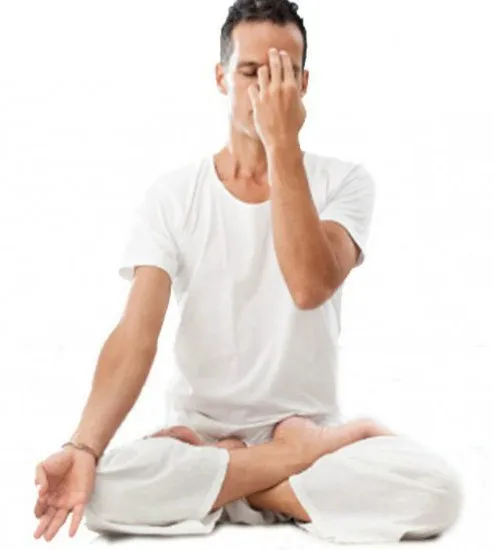
Frequently Asked Questions
Question: How do I Know that I have Allergic Rhinitis?
Answer: One, who has Allergic Rhinitis, will have symptoms like a common cold with heavy sneezing, itching in the nose, throat & eyes, fatigue, etc.
Question: What will Happen if Allergic Rhinitis Untreated?
Answer: It becomes chronic and may lead to complications like chronic nasal obstruction, inflammation, etc.
Question: Is Allergic Rhinitis Serious?
Answer: Allergic Rhinitis causes heavy sneezing, Itching, and irritation in the nose, eyes and in the throat, etc. It can cause sleep problems, interfering with everyday life.
Question: Is there a Permanent Treatment for Allergic Rhinitis in Ayurveda?
Answer: Yes, Ayurveda treats Allergic Rhinitis permanently. 90% of patients who are suffering from allergies can become normal with correct IAFA® ayurvedic treatment. Ayurveda has the potential benefit of relieving a large number of patients from the horrible attacks of allergic reaction in general and allergic rhinitis (nasal allergy) in particular. It focuses on the body’s immune system by reducing hypersensitivity to allergens. After administration of ayurvedic medicines, over a period of time, the patient reacts less aggressively to the triggers and gets better adapted to his environment.
Question: Is taking Antihistamines Daily bad for My Health in Allergic Rhinitis?
Answer: For long-term use, it has many side effects like drowsiness, weight gain, changes in vision, dry mouth, upset stomach, etc.
Question: Can Allergic Rhinitis be Permanently Wiped Off?
Answer: Yes, by IAFA® root cause treatment in allergy disorders you can get permanent relief from this disease. Ayurveda the ancient method of treatment will help you in reducing the frequency of attacks of this disease and can prevent it from leading to different another disease like Asthma or Sinusitis.
Question: Are there any Home Remedies I can follow to Combat Allergic Rhinitis?
Answer: Simple remedial measures such as warm water intake, taking hot herbal tea, or help to clear the airways by unblocking the nose through Jal Neti. Eating food products rich in omega-3 fatty acids like flax seeds (alsi) almonds, walnuts, pumpkin and will lower the risk of developing allergies.
Question: Is Allergic Rhinitis a Contagious Disease?
Answer: Allergic rhinitis is not an infectious disease and never be transmitted from one person to another. The reason for the disease is a hypersensitivity reaction to certain substances, and this trait is individualistic.
Question: How do I know if my Child is Suffering from Allergic Rhinitis?
Answer: Allergic rhinitis usually occurs after years of repeated inhalation of allergens. The most common symptoms to rule out are continuous sneezing with nasal discharge, itching, watering, and redness of the eyes. Inflammation can sometimes spread from nasal passages to the throat and ear producing postnasal drip and discomfort in the ears. Some children can even complain of nasal blockage with mouth breathing at night. However, the final diagnosis can be made only by a broad certified ayurvedic allergist, on careful eight-fold examination and history taking.
Question: What Causes My Allergies to Flare up within the Spring?
Answer: Pollen is the presumably cause. Your immune system is designed to remember the pollen released by various plants. Each type of plant releases pollen at about the same time every year. In the early spring, trees are usually the first to release pollen usually. Grasses come next in the spring and early summer and weeds generally release their pollen in late summer. The specific types of pollen and the time of their release depend upon the local climate and vary around the country. People with hay fever (seasonal rhinitis) are often allergic to more than one type of pollen.
Question: What will Influence the Severity of the Allergic Reaction Season?
Answer: Weather will influence the temporal arrangement and severity of the allergic reactions season. A gentle winter typically ends up in a lot of pollens. The grass season varies the foremost. If the spring is hotter and wetter than usual, then a lot of grass grows, which ends up in a lot of pollen season throughout the late spring and summer. However, the rain will have edges; rain will wash pollens that have already been free out of the air.
Question: I have Always had Normal Nasal (Rhinitis) Symptoms, but this year, I have also Developed Asthma and Food Allergies. Is this a Typical Allergic Response?
Answer: This condition is called oral allergy syndrome. This occurs when cross-reactions between allergy pollen and fresh fruit cause itchiness and swelling in the mouth and throat after eating the food allergen. Although this is usually mild, you should be evaluated by your allergist, because sometimes the reaction can be severe.
Question: Can Allergies Cause a Fever?
Answer: Generally, no Allergies related to bacterial or viral infection can lead to a fever, we can indirectly blame the fever on allergy.
References
- Ayurvedic Aspects of Allergies and Fungal Infections, Edition 2021, by Sahil Gupta, Seasonal Allergy Chapter No. 8, Page No. 50-54.
- Agnivesha. Charaka Samhita, Comm. Chakrapanidatta Ed. R.K. Sharma, Bhagwandash, Chowkambha Sanskrita Series, Varanasi, 1984, Sutra Sthana 11/43.
- Sushruta. Sushruta Samhita Dalhana Commentary – Nibandhasangraha, edited by Vaidya Jadavaji Trikamji Acharya, Chaukhamba Surbharti Prakashana, Varanasi, 2012, Sutra Sthana 1/15.
- Sharma PV, Dravyaguna vijnana – volume II, Varanasi, Uttar Pradesh, India: Chaukhambha Bharati Academy; 2001.
It is always recommended that before proceeding with any medications must consult with our Ayurvedic Allergy Specialist. At Dr. Gupta’s IAFA®, it is a priority to promote best practices in lifestyle and health care through Ayurveda. IAFA® ensures that our health care system gives you all visible and credible resources.
Your one source for help!!!! Think about Dr. Gupta’s IAFA®, Book your Appointment now!!
Was this Page Helpful?
So IAFA® Root-Cause Treatment of Allergic Rhinitis is Just 3 Steps Away!

01. Connect With Us
Share your history of illness or Book your appointment

02. Consult With Us
Dr. Gupta a certified Ayurvedic Allergist Consultant

03. Root Cause Treatment
Get an accurate diagnosis, medicines, diet & lifestyle change
Real Case Studies – Successfully Treated Patients
Real Case Studies of Successfully Treated Patients from All Around the World by IAFA Ayurveda®
-
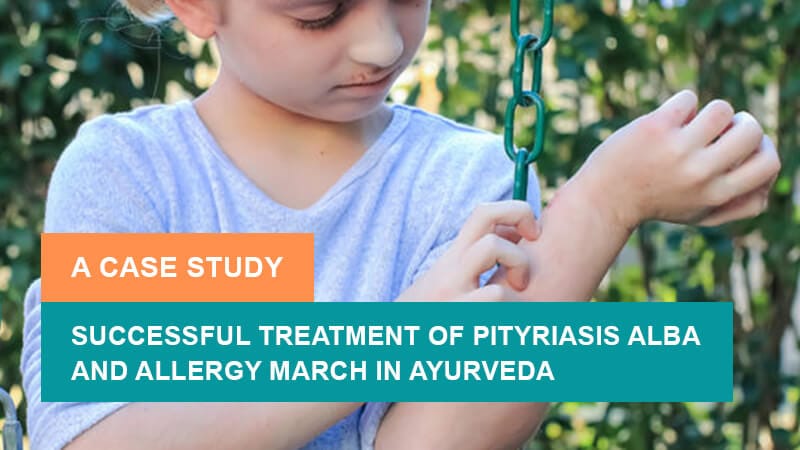
Successful Treatment of Pityriasis Alba and Allergy March in Ayurveda – A Case Study
It is a case study about successful treatment of Pityriasis Alba and…
-

Successful Treatment of Gallstones (Cholelithiasis) with Ayurvedic Medications – A Case Study
It is a case study about the successful treatment of Gallstones (Cholelithiasis)…
-
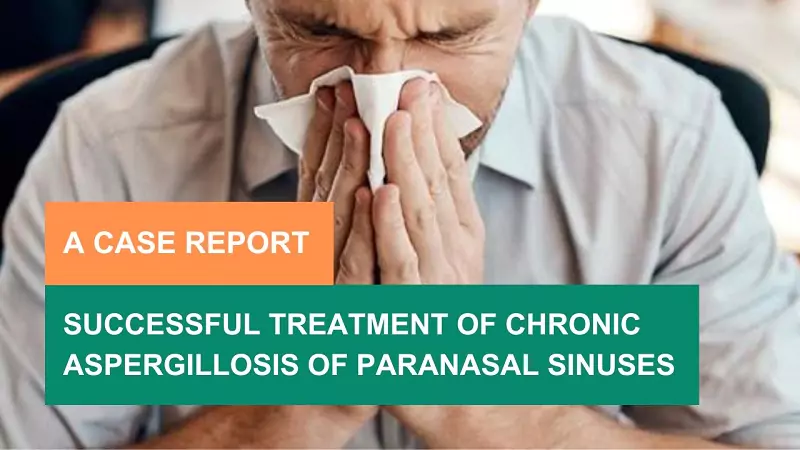
48-Year-Old Male Patient Got Relief from Chronic Aspergillosis of Paranasal Sinuses – A Case Study
Fungal infections can be treated with a high success rate by various…
-
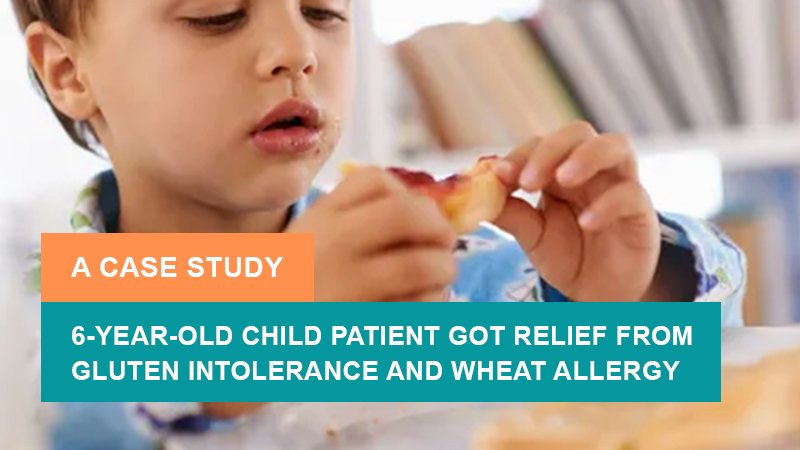
6-Year-Old Child Patient Got Relief from Gluten Intolerance and Wheat Allergy – A Case Study
It is a case study of a 6-year-old Child Patient who got…

